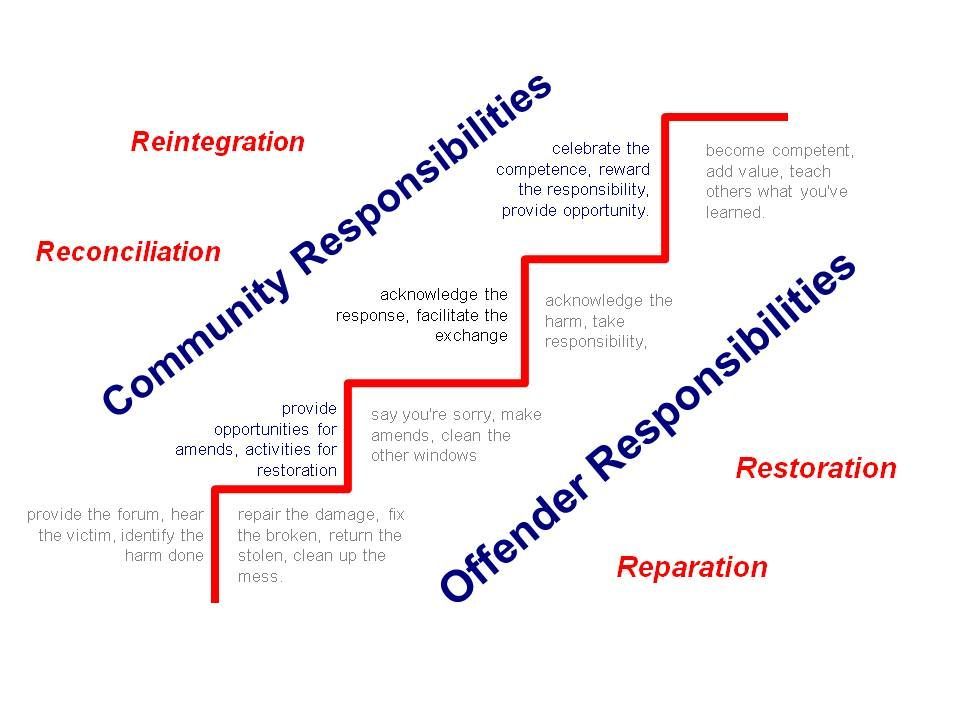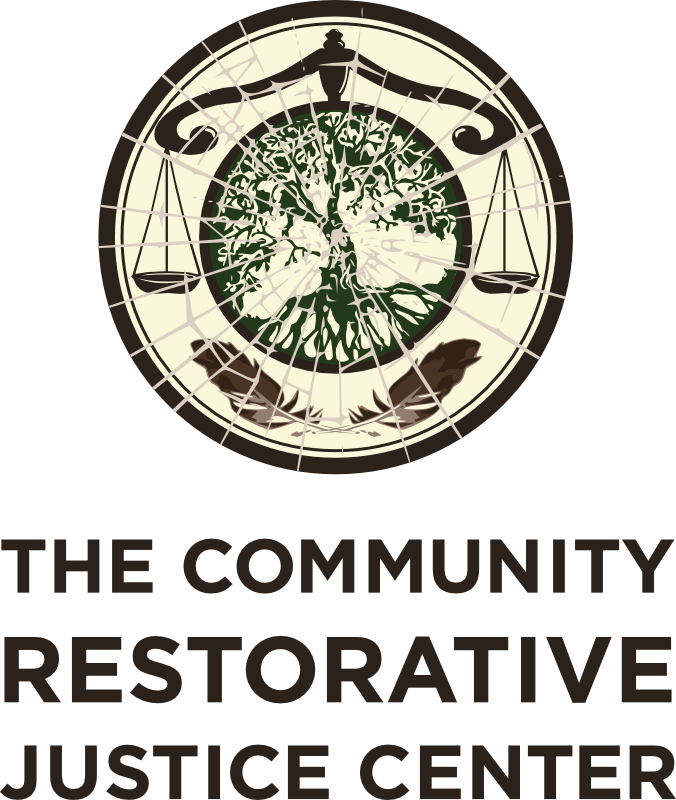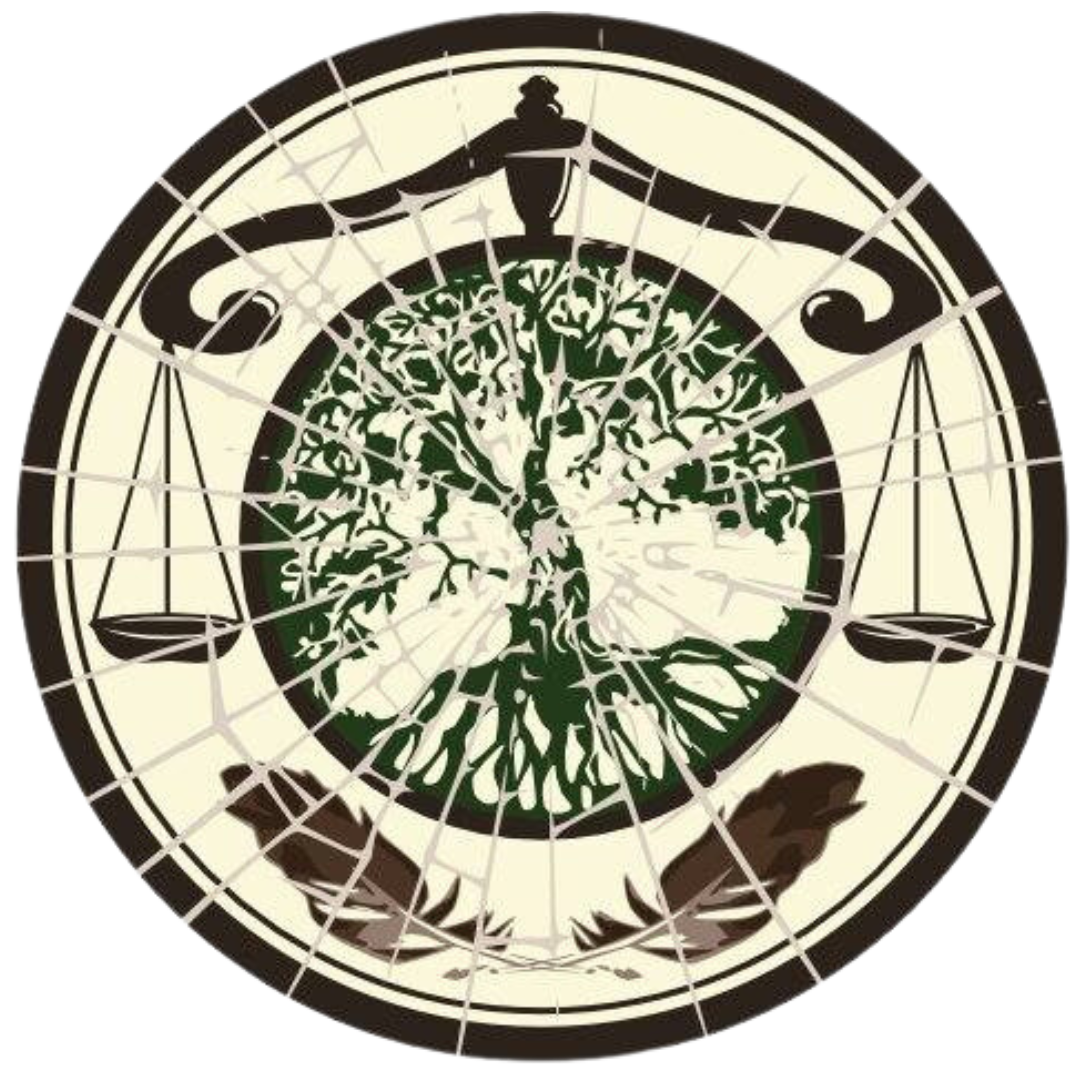Restorative
Justice
What is Restorative Justice?
Restorative Justice is system of criminal justice that enables people harmed by crime, the person who committed the crime (called the "responsible party"), and affected members of the community to be directly involved in responding to the offense.
Justice Center staff facilitate a variety of programs and processes that aim at holding responsible parties accountable for their actions, repairing the harm done to affected parties and the community, and restoring the person who committed the crime to a productive role in the community.
Referrals to the Justice Center’s restorative justice programs may be made by Probation and Parole, the State's Attorney, Judges in court, local law enforcement agencies, schools, and more.
Here is what one responsible party had to say after going through a Restorative Justice Panel: “The people [on the panels] saw me as a person, although I committed a crime, and not as a criminal. Everyone was very kind and understanding and gave me a good feeling that I’m not a bad person, I just made a bad decision.”

Which Situations Benefit from Restorative Methods?
- Disputes with your neighbors, such as noise, vandalism, animal complaints, parking, etc.
- Landlord-tenant disputes
- School discipline and truancy matters
- Problems related to business or workplace conflicts
- Pre-charge and post-adjudicated criminal offense
How Does the Community Benefit?
- Everyone has a chance to speak and be heard.
- Victims needs are addressed. Everyone can “win.”
- Creative solutions go beyond compromise.
- The people, not a judge, set the terms of the agreement.
- Offenders are held responsible.
- Citizens are involved.
- Process preserves relationships between people.
- All services are free of charge.

